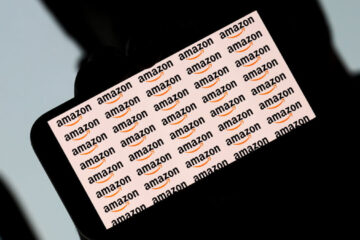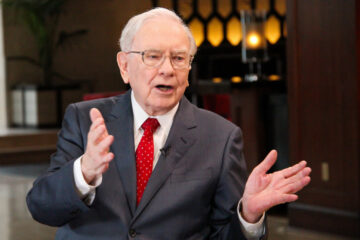The U.S. and China have locked horns over trade, and neither country will likely escape unscathed.
The decision to impose tariffs on imports has sparked considerable debate. Those in favor of tariffs argue they’ll encourage a return of manufacturing to the United States, while also generating much-needed revenue that can lower our deficit. Opponents argue that tariffs are a tax on consumers that will spark inflation, potentially sending our economy into a tailspin.
Related: Iconic fund manager sends shocking 3-word message on stocks
The reality may land somewhere in between, but most agree that the longer China and America dig in their heels, the more damage will be done.
As a result, resolution, or at least a pathway to a trade deal, can’t come soon enough.
That’s a common sentiment among influential global leaders, including Bill Ackman, the uber-popular portfolio manager behind Pershing Square Capital Management, a hedge fund with over $18 billion in assets under management.
Ackman recently shared his perspective on the ongoing U.S.-China trade war, laying out what’s at stake.
Bill Ackman manages money in a concentrated portfolio usually including between 12 to 15 positions.
Image source: Jared Siskin/Getty Images
‘China tariffs are very damaging,’ says Ackman
The U.S. and China have become deeply interconnected, particularly since China was admitted into the World Trade Organization in 2001.
The access to cheap labor has been a boon to U.S. companies and American consumers, who have gotten used to shelves filled with inexpensive goods ranging from clothes to electronics made in China.
Related: Treasury Secretary delivers message on trade war progress
Interreliance isn’t limited only to large companies, though. As technology has evolved and supply chains have been built, mid- and small-sized companies have turned to China, importing various goods, including parts used to make almost everything still manufactured in America.
The trade war is particularly risky for these small and mid-sized businesses, which collectively employ about half of America’s workers and represent over 40% of the country’s gross domestic product, or GDP.
“The China tariffs are very damaging in the short term to companies that rely on China for a large percentage of their goods or for parts to make their products,” said Ackman in a post on X. “This is particularly true for small companies who don’t have the wherewithal to weather the storm.”
Larger companies are more insulated against trade war risks because of their deep pockets, but are not immune to them. As a result, it’s likely that whatever trade deal finally gets inked, they’ll be reshaping their supply chains and reducing their China exposure.
“Unless it is clear that a company can continue to source from China on economically viable terms, it must leave the country,” said Ackman. “There is no board of directors or management team who will ever again feel comfortable relying on China for a major portion of their supply chain. The damage has been done.”
Ackman offers blueprint for solving China, US trade tussle
The trade war has uncovered the black swan risks associated with concentrating production overseas, and the longer it stretches out, the more unlikely it is that U.S. buyers remain committed to Chinese suppliers.
More Experts:
Legendary fund manager sends blunt 9-word message on stock market tumbleBillionaire Michael Bloomberg sends hard-nosed message on economyRare event may send S&P 500 soaring
The risk to the U.S. economy from tariff-driven inflation crimping household spending and trade uncertainty causing a pause in business spending means that the U.S. and China both have very good reasons for wanting this trade war to end.
“China and the U.S. are highly incentivized to take the tariffs down to more reasonable levels — say 10% to 20% — as quickly as possible,” said Ackman. “The only thing stopping the reduction in tariffs to a more sensible level is the fear on the part of both countries’ leadership of looking weak.”
Ackman suggests that the countries adopt “a 180-day pause to allow for negotiations to take place.”
For a deal to move forward, Ackman suggests China needs to address “IP theft, forced technology transfer, market access restrictions, tariffs, and other barriers to doing business in China.”
If it does so, a lower-tariff scheme that’s more easily digested could reduce the likelihood of a mass exodus of U.S. demand for Chinese goods, easing the damage done by the trade war on both economies.
However, Ackman thinks China will be the bigger loser if it digs in its heels and doesn’t come to the table.
“If instead China stubbornly decides to hold out and not negotiate due to pride or other emotional issues, China will suffer that much more severe and permanent economic consequences,” concluded Ackman. “Time is the friend of the U.S. and the enemy of China’s in this negotiation.”
Related: Veteran fund manager unveils eye-popping S&P 500 forecast


